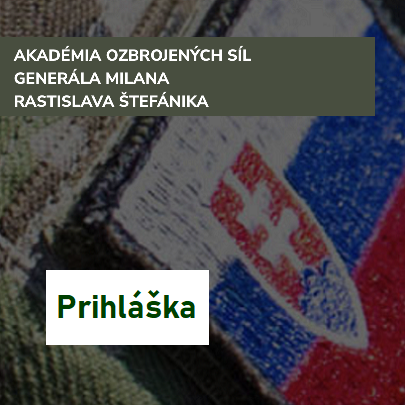Massmedia
Some people think that television does more harm than good. Talk about the topic and give some pros and cons of watching TV. Which newspaper or magazine do you prefer? Explain your choice. Talk about the possible influence of mass media on people´s lives. Take into consideration both positive and negative effects. Use examples from the lives […]
- Some people think that television does more harm than good. Talk about the topic and give some pros and cons of watching TV.
- Which newspaper or magazine do you prefer? Explain your choice.
- Talk about the possible influence of mass media on people´s lives. Take into consideration both positive and negative effects. Use examples from the lives of famous personalities.
The term massmedia is applied to all media that reach a mass audience.
Massmedia existed as long as mankind itself. In the past: information was sent by bottle, pigeons, a man with a drum etc., Now: new modern technologies are used such as video recorders, cameras, compact discs, USB keys, computers, Internet etc.
THERE ARE FOUR MAIN SORTS OF MASSMEDIA
- press: newspapers and magazines
- television
- radio
- Internet
TELEVISION
= the most popular source of information for people = television programmes: mews programmes, weather forecast, chat/quiz shows, documentaries, wildlife programmes, educational programmes, soap operas (TV series about a group od people and their lives, each part is connected to the other, it usually have many parts and runs for many years), sitcoms (amusing series, there is a different story each week about the same group of people), films, cartoons, plays, dramas, breakfast/morning shows.
TV CHANNELS
- commercial (supported by companies that give money to them for advertising of their products, service) = Markíza, JOJ, Nova, TA3
- non – commercial (supported by the state budget, donations, grants) = STV1, STV2
= pros a source of information (news programmes)
– a way of education (educational programmes, wildlife programmes)
– a kind of entertainment (films, shows, quiz, cartoons)
– a way of getting rid of stress, of relaxation (soap opers, sitcoms)
– it might be a hobby for some people = cons: – some people might become addicted to watching TV (they spend too much time by watching )
– cartoons – nowadays they are different from the past, they are full of violence, bad language – children learn from them negative aspects of behaviour, they are more violent, more rude, cheeky. (not all cartoons are like that, we need to pick up the right channels, the right children programmes)
– children spend less time playing with their friends, they spend too much time sitting inside instead of playing in the garden.
– news – full of information about crimes, murders, frauds etc., it may be an instruction for some people how to get money by commiting crime.
– watching some commercial TV channels might influence our political view by getting not the objective new
ADVERTISEMENTS
- the purpose – sell the product == that’s why the advertisement exaggerate the effect of the product, tries to be as attractive as possible, sometimes they are really silly but that is the purpose because it attacks our minds and we may start thinking about it and we may buy it.
- the effect may be negative, especially towards children, they believe in it and want the product, then they can be disappointed since the effect is not as big as it has been shown on the advert.
- old people are too trusting and they buy stuff that they see on TV, in fact it might be a waste of money
NEWSPAPERS AND MAGAZINES
- What’s the difference between newspapers and magazines?
- NEWSPAPERS
- are issued daily or weekly
- are made of not so quality paper
- usually black and white
- two kind of newspapares:
- quality (serious) papers: in Britain usually broadsheets (large sheet) bring news that is objective, serious, are read by those who expect serious news consist of : news reports, feature articles, international,domestic news, political commentaries, bussiness news, sport reports, reviews,
- in Britain (The Times, Sun), in Slovakia (Sme, Pravda)
- tabloids or gutter press : in Britain – small sheets specialize in articles that are entertaining e.g. gossips about famous people, features about stars, celebrities are heavily illustrated and the headlines takes more space than the article itself, relatively poor of the quality
- MAGAZINES
- are issued weekly or monthly
- are made of better paper
- usually coloured and more expensive
- intent on special topic
- divided according to:
- special hobbies (gardening, fishing, hunting,computers, astronomy, sport magazines
- different age: magazines for men, women, teenagers
Which newspaper or magazine do you prefer? Explain your choice.
INTERNET
- the latest technological contributions = the Internet (television, radio, press are often replace by the Internet)
- Internet = a source of all kind of information, even TV, radio channels can be fing on the
- advantages:
- quick, really comfortable way of gainng any kind of information
- a way of communication with people living far away from us (sending e-mail, skype, facebook)
- a way of finding a job and communicating with a potencial employer (a really quick way how to find a job)
- a way of doing shopping (comfotable, easy)
- disadvantages:
- a lot of websites unsuitable for children (full of violence, sex)
- families – spend less time together, they don’t talk to each other
- addiction
Think of other negative aspects of the Internet and media on the people’s lives and say some examples from your life or lives of famous people (paparazzi and celebrities).
Za správnosť a pôvod študijných materiálov neručíme.







